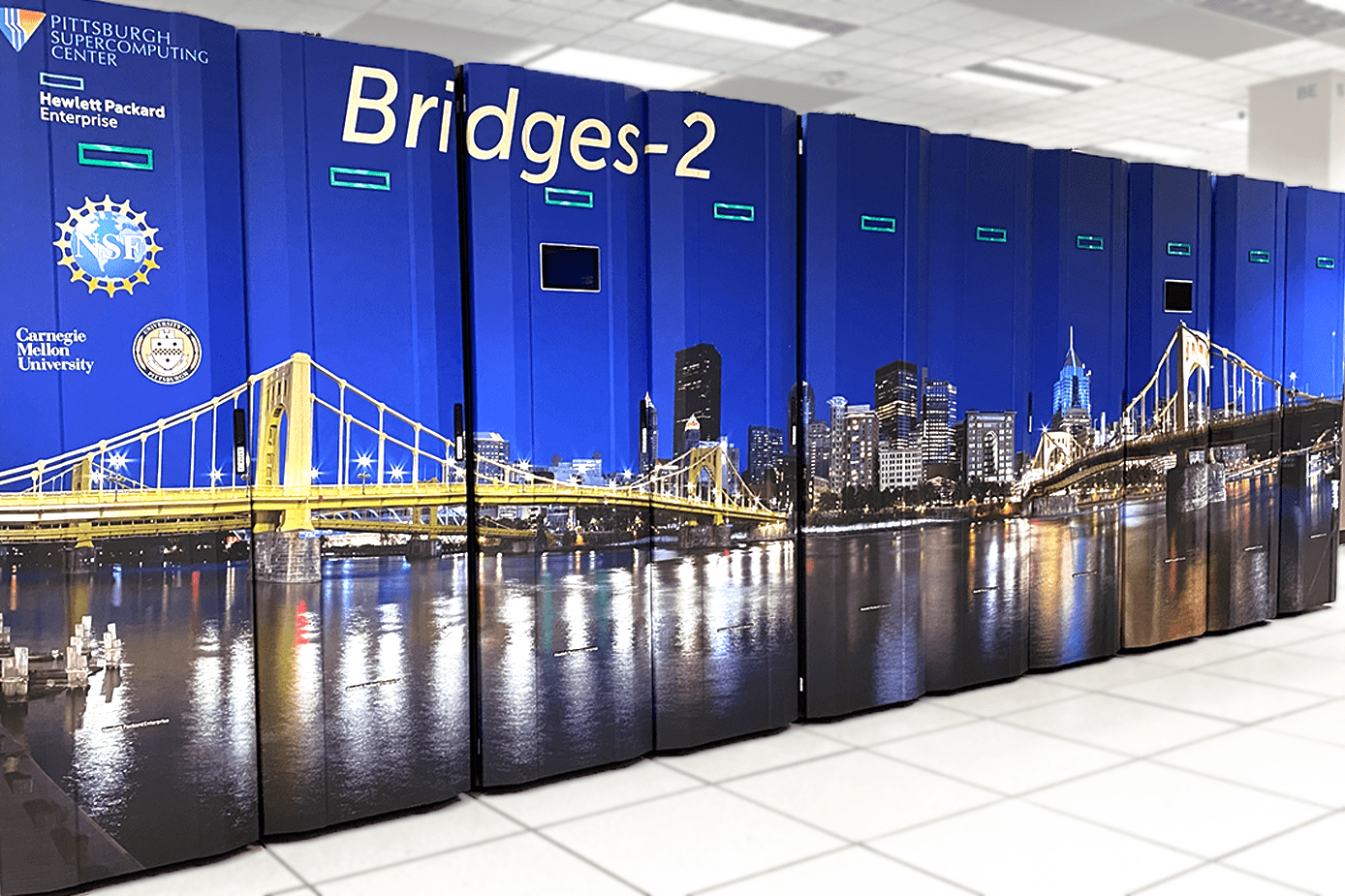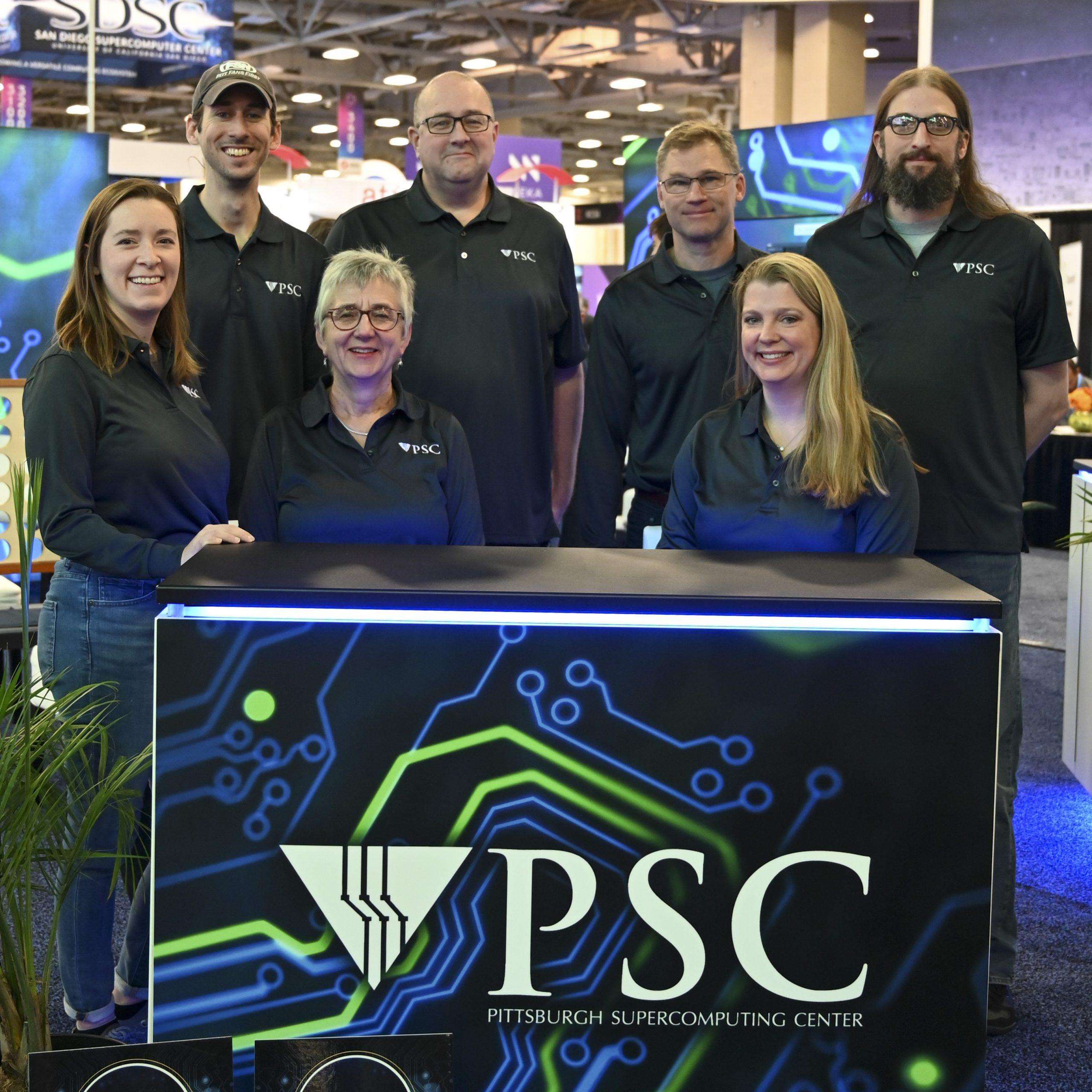About Us
Pittsburgh Supercomputing Center has been enabling discovery since 1986
About Us
Pittsburgh Supercomputing Center has been enabling discovery since 1986
Our mission
PSC’s mission is to enable the advancement of science and research. We cultivate collaborative partnerships, empower the next generation of researchers, and provide cutting-edge cyberinfrastructure.
Our vision
We will be the pioneering leader in advanced scientific computing and will expand access to resources for breakthrough discoveries worldwide.
Our values
Impact We are committed to doing and enabling work that makes a difference in our community, society, and the world.
Inclusivity We foster an environment that is welcoming to all, and ensure equal access to scientific computing resources.
Innovation We seek out new ideas and methodologies to benefit our team and partners, and we implement creative solutions to challenges.
Collaboration We encourage cooperation and synchronization across our internal teams and with external partners. We advance discovery through respectful collaboration centered around common goals.
Integrity We uphold high ethical standards in personal and professional behavior and are committed to transparency and accountability in our relationships.
Reliability We pride ourselves on consistently outstanding performance, wherein our users, partners, and stakeholders know that they can count on us to deliver on our promises and reach our goals.

Our Home Institutions
Carnegie Mellon University
A private, global research university, Carnegie Mellon stands among the world’s most renowned educational institutions and sets its own course. With cutting-edge brain science, path-breaking performances, innovative start-ups, driverless cars, big data, Nobel and Turing prizes, hands-on learning, and robotics, CMU doesn’t imagine the future — it creates it.
CMU faculty and staff work with PSC experts on an expansive set of research projects, including investigating how molecular movements and genetic changes govern biological functions and pose opportunities for treating human disease; gleaning clues from historical documents to settle long-standing questions of who played pivotal roles in history and how they did it; leveraging computation to better understand the origins of our Universe; using artificial intelligence to improve human decision making; creating new materials for improved electronic devices; and analyzing energy use to save dollars and reduce carbon footprint.
The University of Pittsburgh
The University of Pittsburgh (Pitt) is a world-renowned leader in research and education. Pitt is repeatedly ranked as the best public university in the Northeast, per The Wall Street Journal/Times Higher Education. Home to 16 undergraduate, graduate and professional schools, Pitt offers nearly 500 distinct degree programs, serves more than 33,000 students, employs more than 14,000 faculty and staff, and awards 9,000 degrees annually.
Pitt faculty collaborates with PSC on a wide range of advanced computing topics, including: the study of genetic mutations to understand the development of disease; the exploration and mapping of anatomy, down to the cellular level; the design of advanced materials to reduce pollution and improve industrial processes; and the digitizing of historical documents to expand our understanding of growth and development in western Pennsylvania.
Who We Are
Pittsburgh Supercomputing Center is a joint computational research center with Carnegie Mellon University and the University of Pittsburgh. Established in 1986, PSC is supported by several federal agencies, the Commonwealth of Pennsylvania, and private industry and is a partner in the National Science Foundation cyberinfrastructure program.
PSC provides university, government, and industrial researchers with access to several of the most powerful systems for high performance computing, communications, and data storage available to scientists and engineers nationwide for unclassified research. PSC advances the state of the art in high performance computing, communications, and data analytics and offers a flexible environment for solving the largest and most challenging problems in computational science.
PSC architects and operates a sophisticated facility that includes high performance computing (HPC) systems, high-speed parallel filesystems, and leading-edge networking, specializing in:
- Petascale computing and data: PSC’s flagship HPC system, Bridges-2, is a uniquely capable petascale resource for empowering diverse communities by bringing together HPC, AI, and Big Data. Its richly-connected set of interacting nodes and active storage systems offers exceptional flexibility for data analytics, simulation, workflows and gateways, leveraging interactivity, parallel computing, Spark, and Hadoop.
- Networking: Network facilities at PSC consist of production and research LAN, MAN, and WAN infrastructures. PSC’s WAN connections are provided by 3ROX, a regional network aggregation point operated and managed by PSC to provide cost effective, high-capacity, state-of-the-art network connectivity to the university community.
- Applications: PSC hosts advanced, scalable applications and software infrastructure to support research, scholarship, teaching, and learning in all disciplines of science, engineering, and the humanities. Applications are supported by PSC’s domain experts, who add value through integration, optimization, consulting, and training.
Pittsburgh
Supercomputing
Center
Phone Number
(412) 268-4960
Address
300 S. Craig Street
Pittsburgh, PA 15213



